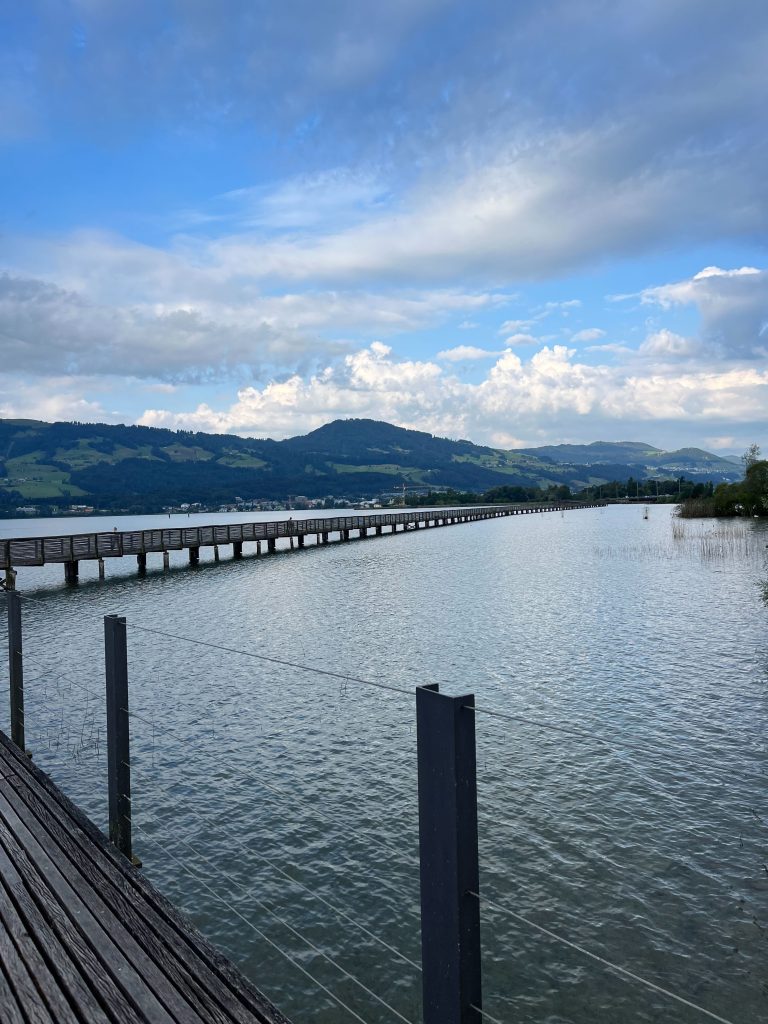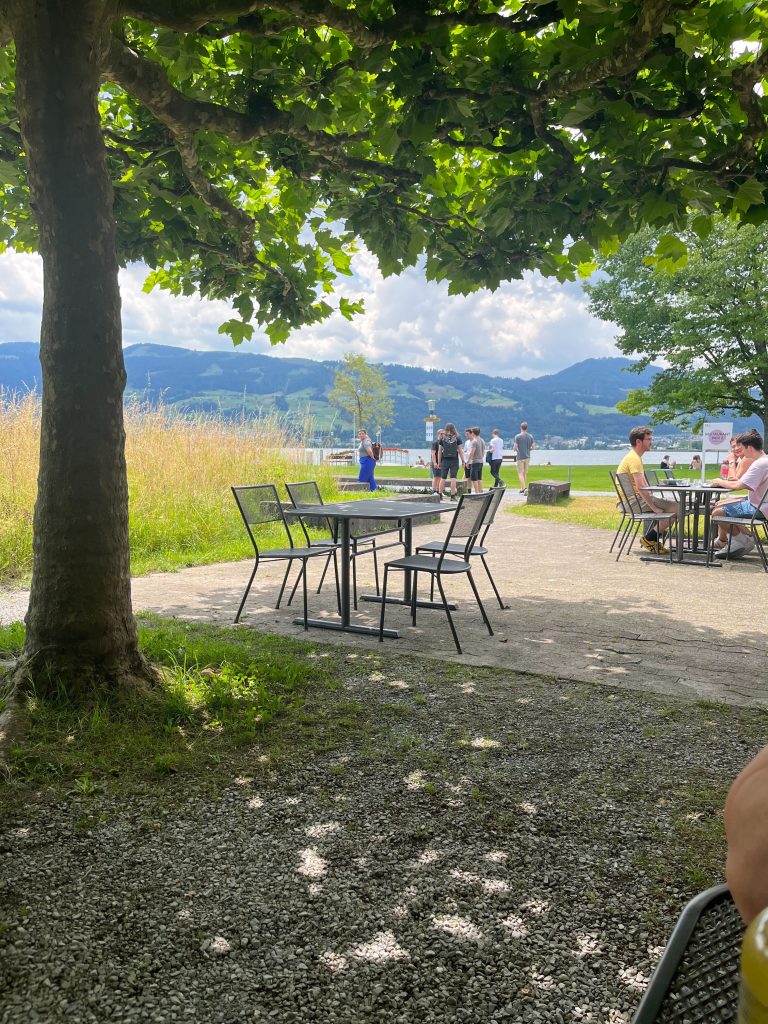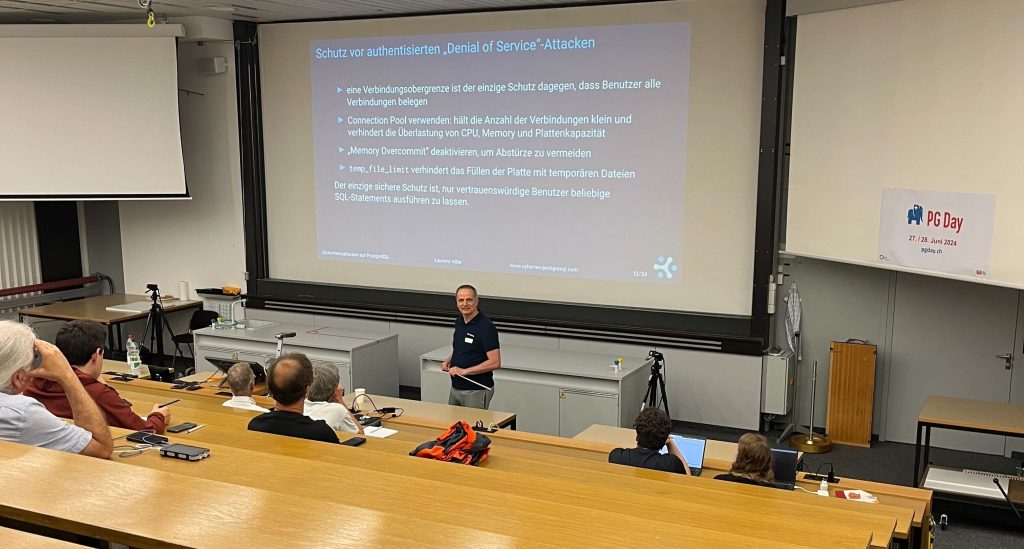I enjoy writing about the technical aspects of PostgreSQL, but occasionally it is good to write about other aspects of PostgreSQL. Since I just returned from the Swiss PGDay 2024, I'll sing the praise of PostgreSQL conferences.
Table of Contents
PostgreSQL is much more than the best database in the world: it is a great community of people. Jan Karremans once said that the software is a side effect of the community. While I would not take it that far, it is certainly true that every free open source project can only prosper as long as there are people who dedicate love and effort to it.
People who are not familiar with the ways of open source sometimes believe that open source software is written by weirdos who have nothing better to do with their spare time. But in fact most open source software developers write code as part of their paid job. Sometimes companies pay their employees to hack on an open source project because they want to make it more useful for themselves. If many companies have similar needs, it makes sense to pool your efforts that way. Other companies want to sell open source services. For that, they want the software to be good, and they need the kind of expertise that you only get if you contribute to the code.
However, if you read the PostgreSQL mailing lists, you get the impression that for many contributors, PostgreSQL is more than a day job, and that impression doesn't lie. Like Tomas Vondra said in the opening keynote of this year's Swiss PGDay: Many of the key contributors are more loyal to PostgreSQL than they are to their company. Which brings us back to the opening quote of this section: what is this community that inspires such a loyalty, and what binds these people?
Usually, there is a strong focus on the people who contribute code to PostgreSQL. But PostgreSQL is much more than a gaggle of hackers (also known as the “PostgreSQL Global Development Group”). There are people like Stefan Kaltenbrunner who keep the project's infrastructure running. There are people like you who run their regression tests with the latest PostgreSQL beta release and report any bugs they find. And there are people who organize local user groups or big PostgreSQL conferences. I don't want to make a value judgement, but many of these latter people invest more personal time and unpaid effort than many code contributors. What drives these people?
Different people are motivated by different things, but I believe that the PostgreSQL conferences play a crucial role in what inspires people about PostgreSQL. Perhaps the history of my own involvement with PostgreSQL can serve to show that.
My involvement with PostgreSQL started when I was working for the City of Vienna, and they wanted to get an open source database for strategic reasons. We evaluated a couple of them, and what made PostgreSQL stand out were its advanced features and the quality of its documentation. I'd say that the documentation was what got me hooked at first.
My involvement with PostgreSQL got much deeper when I started writing code for PostgreSQL. There were some “enterprise features” that we were missing, mostly stuff that made life easier for the DBA and the developers. I liked the communication style on the mailing lists, and I liked how you could communicate directly with the people who wrote PostgreSQL.
Then in 2010 I was staying home to take care of my eldest child. Childcare is demanding on your time, but it starves you intellectually (at least until the children are old enough to talk). So when I had the opportunity to take a few days off to attend the PGDay Europe 2010, I went for it and paid my own way.
The experience was overwhelming. The talks were inspiring, but mostly it was mingling with the crowd that did it for me. There were the faces to the names that I knew from the mailing list, there were people who wanted to learn something, there were people who wanted to sell something. There were no elitist circles, everybody talked with everybody else. Nobody tried to shove advertisement into your face; the sponsors were there if you wanted to talk to them, but mostly in the background. After these two days, I was seriously hooked, and I have worked with PostgreSQL ever since and have not missed a single European PostgreSQL conference.
PostgreSQL has grown, and I now work for a company that sells services, products and training for PostgreSQL. Attending conferences is now part of my job, but that hasn't taken away the attraction. Although the conferences have grown with PostgreSQL's prevalence, all the things that attracted me in 2010 are still there. In addition to that, conferences have become a kind of family reunion. I get to meet my co-workers who live in other parts of the world and all the nice people from the competition who have become friends over the years.
But PostgreSQL conferences are not just a family reunion. Some talks give me good ideas, and then there are all the other people: customers I have never met in person and all the people who are interested in PostgreSQL and whom I have never met before. Talking to them gives me a feeling for what moves PostgreSQL users today.
It is also motivating to get all this positive feedback. If you develop open source software, people usually contact you if they have a problem or found a bug. Similarly, most customers contact us if they are in trouble, if their databases don't perform well or have more serious problems. As a consequence, it is easy to think that your software is just a collection of bugs, PostgreSQL performs badly and autovacuum is a nightmare. At a conference, you get all these uppers like, “Hey, your software is working like a charm!” — “I enjoy reading your blogs!” — “Great talk!”. I return exhausted and with a sleep deficit, but full of positive energy.
Perhaps I should explain about competition in the context of PostgreSQL. As a truly free open source software, PostgreSQL does not belong to a single company. The companies that make money with PostgreSQL find themselves in an interesting position: on the one hand, they compete with each other for the customers who buy their products and services. On the other hand, they cooperate in the development of PostgreSQL and its community. That sounds impossible, but it seems to work just fine. Many of the people I am looking forward to seeing when I go to PostgreSQL conferences are direct competitors. This is probably facilitated by PostgreSQL's healthy growth: if the cake is growing, you don't have to fight so hard to get a big enough share of it.
I find that if I want to understand what is behind something, the most enlightening questions are often, “Who pays for that?” and “Who profits from that?” In the case of PostgreSQL conferences, the money comes from three sources:
Of course sponsors want to get something out of it: new customers and visibility. But many companies also sponsor PostgreSQL community events to give something back to a community that allowed them to prosper in the first place. There is advertising at the booths, and speakers don't keep their affiliation secret, but there is no aggressive advertising. The companies know that that would not ingratiate them to the audience.
This conference has a long tradition. There are a couple of things that make it stand out for me: the venue is not a big hotel (where you spend all day inside, and they all look the same), but the University for Applied Sciences in Rapperswil. I like the more sober academic environment, and I enjoy walking across the campus from one building to the other and occasionally getting lost. And all that is not in the middle of nowhere, but situated on a peninsula in the beautiful Zürich lake.

A few steps away is the small and equally beautiful old town of Rapperswil. People pay more to live there than I will ever earn, yet I get to eat lunch at the university canteen sitting under the trees by the lakeside. Your mileage may vary, but I prefer slightly underdone potatoes in that environment over perfect hors d'oeuvres in a posh hotel lobby.

I also enjoy the moderate size (some 110 people this year). A European conference with 700 attendees is impressive (and fun too!), but at a more moderate scale, you get to have longer and more relaxed exchanges with others. And at the social event, you don't have to shout to talk to your neighbor.
Ah, social events. A PostgreSQL conference is not just talks you attend and networking in the lobby, but there is usually at least one social event in the evening. There you get to speak to other attendants at greater length. For those so inclined, there are beverages to lubricate those wagging tongues. The social event at the Bottéga club in Rapperswil was just perfect: great food, friendly service and an extensive outdoors area. Such events forge the bonds in the community and make the newcomer feel that she (or he) belongs. Most of the in-jokes and legends in the PostgreSQL community originate in social events and hotel bars.
The Swiss PGDay 2024 lasted for two days, and there were two tracks of talks. That means that almost a quarter of the participants are also speakers. So the boundaries between the speakers and the audience are somewhat blurred, and it is not unheard of that a talk ends in an interesting discussion.
My talk was scheduled for the first slot on the first day, and it turned out a bit more interactive than I had planned. We could not get the projection system hooked up to the front of the room, so participants climbed over a partition wall to manually turn on the projector. My laptop got hooked up directly, and my room host Daniel Westermann stood back there and switched the slides for me. But the talk went well, and as everybody roots for a performer in trouble, I got even more positive feedback than usual. (The problems were fixed for later talks.)
I won't give you a “best of” the talks from the conference; you can always look at the schedule. Also, turning the spotlight on some talks would be unfair to the others. Finally, you can't attend more than half of the talks anyway, so you'll always miss out on some of the fun.

I got to meet lots of people whom I had expected to see. This is the place to drag my friend Tobias Bussmann before the curtain. As the treasurer of the Swiss PostgreSQL User Group, who organizes the event, he got to do most of the thankless organizing. That is all the more impressive as he does it in his spare time and not as part of his paid job. Thanks Tobias, and thanks to all the other organizers who made this conference happen!
But I also met some people whose lives had moved them into the side eddies of the PostgreSQL stream, yet who still came out of interest and to be part of the event. That makes me personally happy, but I also take it as a sign that the PostgreSQL community is attractive. Another tell-tale sign for that that some people travelled surprising distances to attend the Swiss PGDay: this time, there were participants from Portugal, the Netherlands and the Czech republic.
The fact that I sit down on the weekend to write this article should be enough to tell you how inspiring the two days were for me. If you are curious to know more about PostgreSQL, if you know all that you can glean from courses or the documentation and want to learn more, or if you want to get to know the people behind PostgreSQL, the best you can do is to go to a PostgreSQL community event. The only danger is that you get hooked like me and want to spend your professional career with PostgreSQL (but then there are worse fates than that).
See you at the next PostgreSQL conference!
You are currently viewing a placeholder content from Turnstile. To access the actual content, click the button below. Please note that doing so will share data with third-party providers.
More Information
Thank you Laurent for your huge contribution on PostgreSQL community !
Interesting comment about loyalty to PostgreSQL. I like to use the analogy of currency. My involvement in the community is my currency. If I were to chose the company over the project that would devalue my currency.